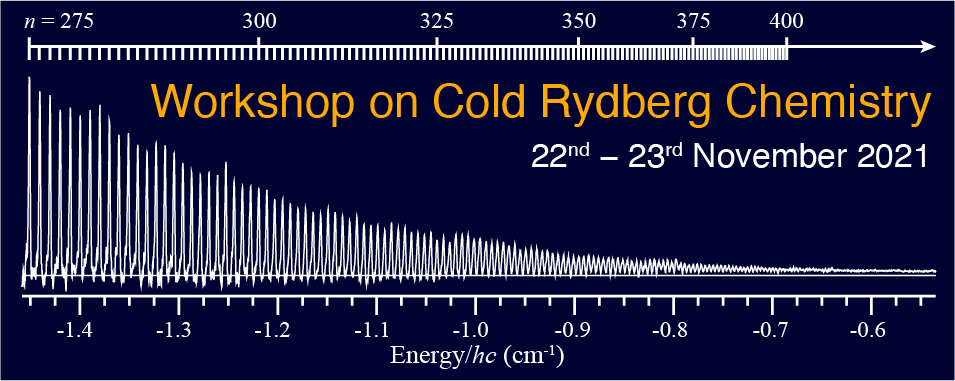Speaker
Description
Precision spectroscopy of high molecular Rydberg states represents a powerful method for the determination of ionization energies and of rovibronic intervals of molecular ions. In this context, the one- and two-electron molecules H$_2^+$ and H$_2$ are particularly attractive because their energy levels can be calculated with extraordinary accuracy, allowing to test molecular quantum electrodynamics (QED), search for new physics beyond the Standard Model and determine fundamental constants.
The bound energy levels of the Rydberg states are obtained by multichannel quantum-defect theory (MQDT), with the information of the Rydberg electron-ion collision being contained in the quantum defects, which depend on the quantum state of the ion.
It will be shown, that using very accurate Born-Oppenheimer potential energy curves for low-$n$f Rydberg states ($n=4-7$), ab initio quantum-defect functions dependent on the internuclear distance, the projection of the orbital angular momentum $\Lambda$, the total electron spin and the energy of the Rydberg electron can be obtained.
Using the concept of a frame transformation, these body-fixed quantum defects allow to describe the collision of the Rydberg electron with the molecular ion core including spin-rovibrational degrees-of-freedom, as well as relativistic and QED effects with an accuracy much better than a MHz.
As an example, it will be shown how the new quantum defects allow the determination of the fundamental vibrational interval of H$_2^+$ with unprecedented accuracy, using experimental data of non-penetrating f Rydberg states.
